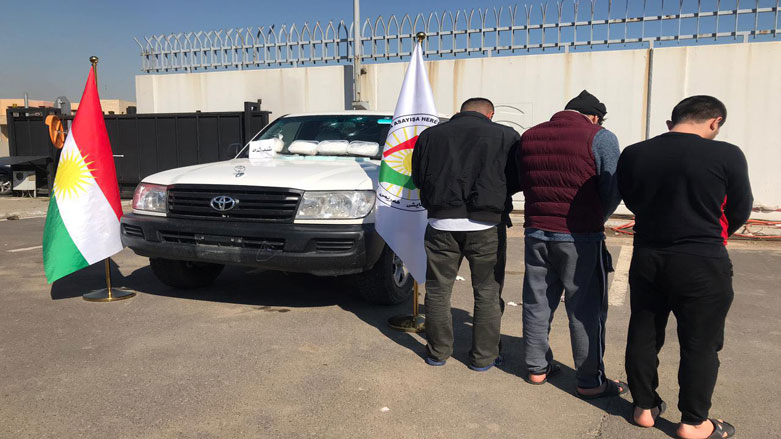Erbil security forces confiscate 3kg of narcotics in Soran, arrest suspects

ERBIL (Kurdistan 24) – Security forces confiscated at least three kilograms of narcotics in the Kurdistan Region on Monday and arrested a number of people suspected of dealing illicit substances.
Security forces in the Soran district, located in northeast Erbil governorate along the border with Iran, arrested three people and seized three kilograms of crystal meth, according to a statement from the district’s anti-drug force.
One of the suspects is an Iranian national while the other two are from the Kurdistan Region, the statement noted.
In December, Erbil counter-narcotics forces published the figures of their activities during 2020, saying they had seized more than 550 kg of narcotics, mostly heroin. The statement also included the number of people accused in drugs crimes and illegal weapons, other narcotics, prescription drugs and counterfeit currency captured during operations.
Read More: Erbil security forces confiscate over 550 kg of narcotics in 2020, mostly heroin
The sale and consumption of non-prescription drugs are strictly forbidden in the Kurdistan Region and Iraq.
Kurdish and Iraqi authorities often intercept shipments of such controlled substances passing through the country, mainly in the provinces of Basra, Diyala, Erbil, and Sulaimani, and specifically in the towns and villages connecting the countries of Iran and Turkey.
Of the 1,100 people arrested last year, 915 were tried and sentenced while the rest have been freed due to lack of evidence or are still on trial, according to the statement.
Local activists and authorities have warned of the rise in drug abuse within Iraq itself.
Editing by Joanne Stocker-Kelly
